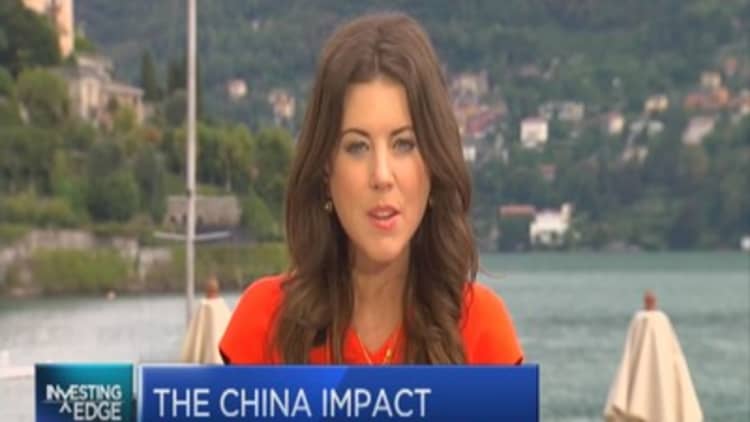Germany's exports and imports hit a record high in July – a welcome sign for Europe's biggest economy as the region braces for a slowdown in the Chinese economy to hit.
Exports rose a seasonally adjusted 2.4 percent from a month earlier to 103.4 billion euros ($115.35 billion) and imports rose 2.2 percent 80.6 billion euros -- the highest values since records began in 1991, Germany's Federal Statistics Office said on Tuesday.
"The Germany trade balance data was simply astonishing and the reading of a 22.8 billion euro (trade surplus) was very encouraging," Naeem Aslam, chief market analyst at AvaTrade, said in a note.
In contrast to the stronger-than-expected trade numbers from Germany, data from China on Tuesday showed the country's dollar-denominated exports declined by 5.5 percent year-on-year in August, while imports slid 13.8 percent.
Germany will set another export record this year despite China slowdown concerns, the head of the German trade association told newspaper Der Tagesspiegel at the weekend.
Still, economists warned Germany was unlikely to remain immune from slowing Chinese growth and that more needed to be done to boost domestic demand.
"The news on the export front for Germany is imperative; the broader story is that Germany's trade surplus is getting bigger and bigger and you can see it as a giant sponge taking demand out of the rest of the world," Stephen King, chief global economist at HSBC told CNBC on Tuesday.
"It's the saver of first resort in the world economy and ultimately what we need is for Germany to reduce its trade surplus by boosting domestic demand, supporting the rest of the euro zone and the rest of the world," he said.
China was Germany's fourth biggest export market in 2014, according to Federal Statistics Office and a slowdown in China is expected to be a headwind for Germany's export-driven economy.
"Germany needs to keep a very close eye on its trade surplus data which has blown well out of proportion according to the EU limits," said Aslam at AvaTrade. "The country needs to invest that extra capital on different investment projects within the country and also contribute towards other euro zone countries."
Otmar Issing, a former chief economist at the European Central Bank, told CNBC at the European House-Ambrosetti Forum that Europe's problems could not be solved by more investment from Germany alone.

Asked whether he was concerned about the impact of a China slowdown on Germany's economy, Issing said that German savings have gone down and that was a good sign that sources of growth were moving to domestic demand.
"On other hand, it would be surprising if a slowdown in China did not have an impact on the economy of the world and also Germany, which is export-led and especially for German carmarkers – China is the most important market now," he said.
German carmakers such a BMW, which benefited from a boom in China's economy over the past decade, have suffered from the country's weakening growth outlook and anti-corruption drive. BMW shares have tumbled about 30 percent from a peak hit in March.




